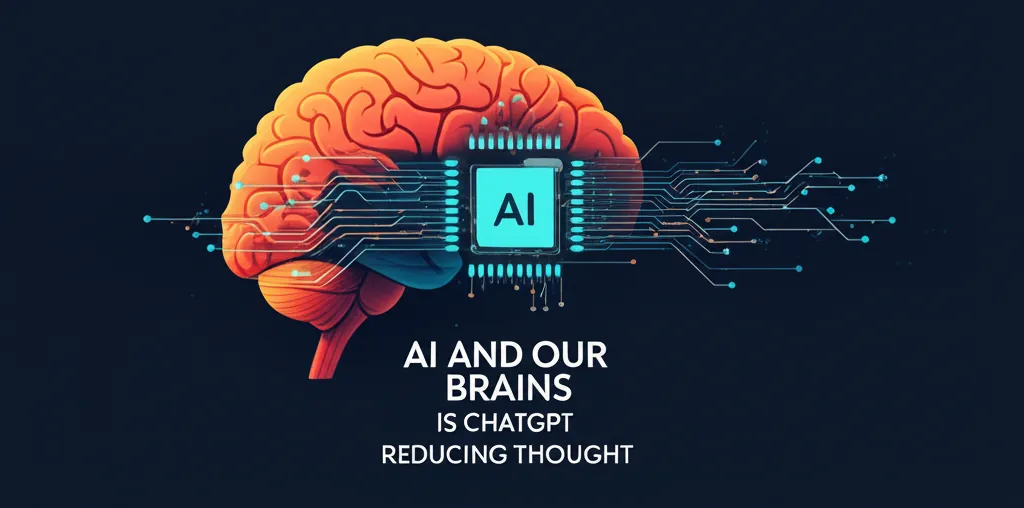Developer Offer
Try ImaginePro API with 50 Free Credits
Build and ship AI-powered visuals with Midjourney, Flux, and more — free credits refresh every month.
AI Overuse Could Weaken Your Brain MIT Study Suggests
Artificial intelligence tools are rapidly advancing, with tech companies heavily investing in making them more sophisticated. As chatbots like ChatGPT become smarter and more intuitive, mirroring human interaction and thought processes, our reliance on them for daily tasks and academic work grows. But as AI's intelligence expands, new research suggests a potential downside: the erosion of our own cognitive abilities.
The Growing Reliance on Intelligent AI
The AI revolution shows no signs of slowing down. These tools are becoming deeply integrated into our lives, with many users depending on them for educational purposes and for quick information on complex topics. While the increasing intelligence of tools like ChatGPT is remarkable, a recent MIT study has brought to light concerning cognitive effects that ChatGPT dependence might have on users. This research raises important questions about the long-term impact of outsourcing our thinking to machines.
MIT Study Uncovers Cognitive Concerns
The study meticulously examined how using ChatGPT affects the brain. Researchers divided participants into three groups. Each group was tasked with writing essays, but under different conditions: one group used ChatGPT, another used a standard search engine, and the third group used no technological assistance at all. To gauge cognitive effort, ECG scans were employed to monitor brain activity throughout the writing task. Subsequently, the essays were assessed by both AI systems and human reviewers to ensure thorough and accurate evaluation.
Key Findings Brain Activity and Memory Impact
The results were telling. Participants who relied on ChatGPT during the writing process exhibited the lowest levels of neural activation. This was particularly evident in brain areas crucial for cognitive engagement and memory formation. Furthermore, these individuals struggled with memory retention, finding it difficult to accurately recall what they had written. This suggests that when AI does the heavy lifting, our brains may not engage as deeply.
In contrast, those who wrote their essays without technological help showed significantly stronger memory retention and higher brain engagement. They demonstrated a deeper level of cognitive involvement in the task. In a follow-up session, the ChatGPT group was asked to complete another essay without the AI's help. The outcome was even more concerning: this group performed worse than their peers, indicating a potential negative impact from prior AI reliance.
Understanding Cognitive Debt
Researchers referred to this observed decline as "cognitive debt." They theorize that consistent reliance on ChatGPT and similar AI tools can lead to this state, ultimately impairing the ability to think critically and eroding fundamental learning skills. It appears that the convenience offered by AI may come with the hidden cost of diminishing our cognitive faculties.
The Bigger Picture Balancing AI Use and Mental Sharpness
While these are the conclusions of a single study, the findings are thought-provoking. They compel us to consider our increasing dependence on tools like ChatGPT and the potential price we pay for the convenience they offer. The advancement of AI technology is undeniable, but it's crucial to be mindful of how its use might affect our own mental capabilities.
Compare Plans & Pricing
Find the plan that matches your workload and unlock full access to ImaginePro.
| Plan | Price | Highlights |
|---|---|---|
| Standard | $8 / month |
|
| Premium | $20 / month |
|
Need custom terms? Talk to us to tailor credits, rate limits, or deployment options.
View All Pricing Details

